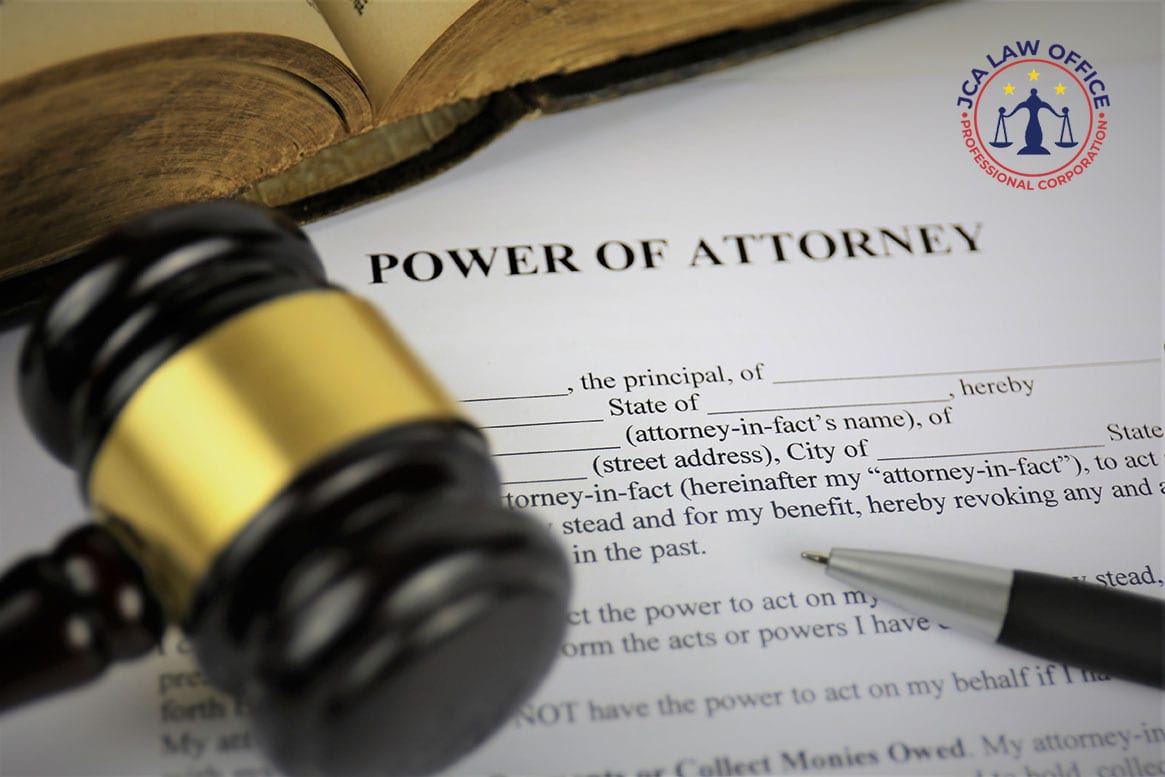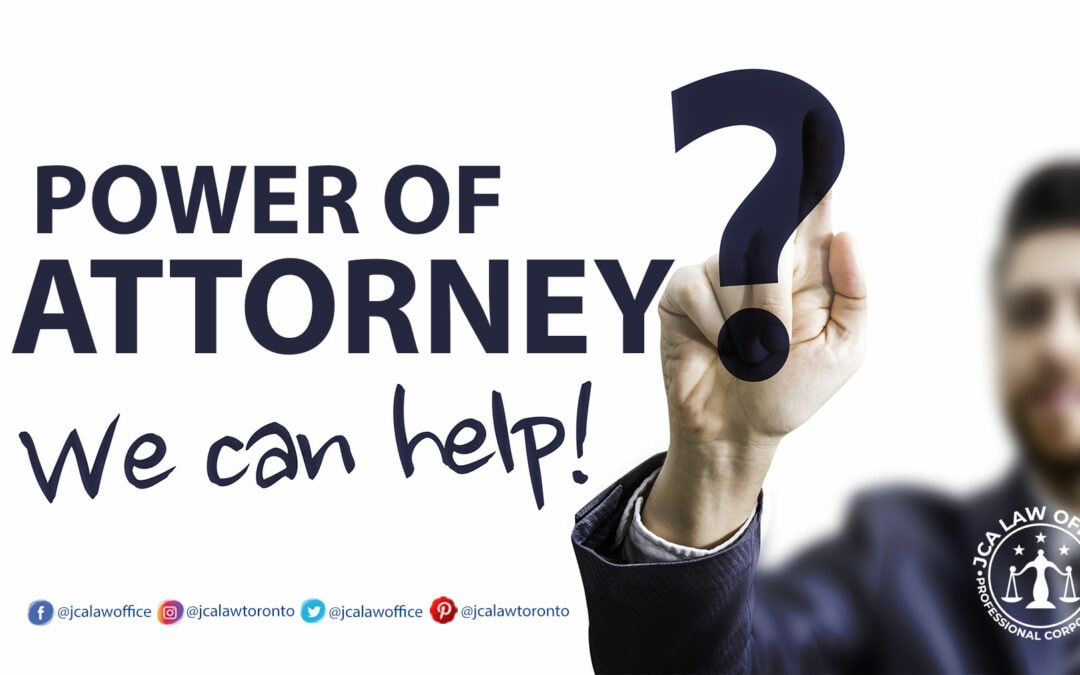
Power Of Attorney (POA): Everything You Need To Know
Gin Aguilar
Power of attorney (POA) – one way or the other you may have been asked to either make one or get one. But what is this legal document all about? What is its purpose and why do we need it?
Get your Power Of Attorney now!
A Power Of Attorney is a legal document in which you give a trusted individual (who is referred to as the “attorney” but does not need to be a lawyer) the right or the authority to handle your affairs and do the decision-making on your behalf if you are unable to handle matters on your own. Therefore, a power of attorney is distinct from a will in that it is used to safeguard your wishes and requests while you are alive; on the other hand, a will is a document that takes effect right after your death.
TYPES OF POWER OF ATTORNEY (POA)
There are two types of power of attorney:
- Continuing Power of Attorney for Property and
- Power of Attorney for Personal Care.
A continuing power of attorney for property authorizes your attorney (the trusted person that you name in the document) to handle your finances, including your property, investments and bank accounts even if you become mentally incapable. Your attorney will have broad authority to deal with all your financial matters which includes paying your bills, submitting your tax returns, collecting claims and benefits, managing your investments, settling of any liabilities you owed or owed to you, and even selling your property on your behalf if you are incapable to make your own financial decisions. It can also be used in instances where you still have the mental ability, but due to sickness or ailment you need assistance to look after your financial matter.
On the other hand, the power of attorney for personal care is the authorization that enables your attorney to make choices about your medical care, where you should reside, and other aspects of your personal life, including food, safety, hygiene as well as social activities that you may attend. You may also want to include an advance directive as part of your power of attorney for personal care. This is a document that informs others what you want to happen if you need medical care and whether you will consent or refuse treatment, or decision whether or not you will be using life support or life-saving treatment should the situation happen. This will not come into force until you lack the capacity to make your own decisions about your health care, welfare and treatment.
Related Topic
Why last will, power of attorney for property & personal care and health care directive (living will) matters?
You may start by getting more familiar with the following important legal documents that you may need in order to be prepared for any critical situations in life… Read More
WHO SHOULD I CHOOSE AS MY “ATTORNEY”?
When you are choosing the person that you will appoint as your “attorney”, you should choose someone whom you trust and who has a genuine concern for your welfare. You may consider choosing a trusted family member or a very close friend who you know truly cares for you. The person you choose as your attorney for personal care must be at least 16 years of age, while a power of attorney for property, your appointed person must at least be 18 years old.
Do not appoint any of the following individuals as your attorney for personal care if they are paid to provide services to you unless that person is also a family member:
- Your landlord or any person who provides care for you in the place where you reside
- Your social worker or counsellor
- Your doctor, nurse, therapist or other health care provider
Again, keep in mind that your appointed attorney need not be a lawyer but must be considered mentally capable when appointed. You may appoint the same person as your attorney for property and personal care. Another option is to use a trust-company to act as your attorney. The trust company will charge you fees but will be impartial and professional in handling your matter.
Please take note that POA’s must be witnessed and signed by two people who are eligible to serve as a witness. Your spouse/partner and your children are NOT allowed to serve as witness.
AM I REQUIRED TO HAVE MY OWN POA’s?
You are not required to make your powers of attorney for property and health care, and no one can force you to create one. If something happens to you and you don’t have one, other arrangements will have to be made.
Without a power of attorney for property, your family will not be able to get access to your funds or assets should the need arises. For instance, unless your bank accounts are in joint names with your spouse, the bank may freeze your accounts and not allow anyone, including your spouse and children, to access them until there is an alternative form of authority. The government may have to step in, and the Office of the Public Guardian and Trustee will become your statutory guardian. Although under the Substitute Decisions Act, there is a process that enables the spouse/partner, or other family member of an incapable person to apply to take over from the Public Guardian and Trustee the statutory guardianship of the property and be authorized to act on the incapable person’s behalf. But you need to take note that this is a very lengthy and costly process. In addition, the family member applying may not be the same person that you would have appointed. It’s a lot easier to already have a power of attorney for property in place should you need one in the future.
The rules and processes applicable to replacing decision-making for personal care are distinct from those that apply to a property. The Health Care Consent Act defines a hierarchy as to who can act as a substitute decision-maker on your behalf should you be considered incapable: first is your spouse or partner, then your parent, then your sibling, and finally, any other relative. Again, the family member entitled to act based on this hierarchy may not be the person you would have assigned as your attorney. You may prevent this from happening by making sure that a power of attorney for personal care is in place. This ensures that if anything happens to you in the future, those you trust and care about will have the power to look after you and make decisions the way you like.
Our cordial and approachable Filipino-Canadian lawyers at JCA LAW OFFICE can help and assist you in preparing your Powers of Attorney.
You may visit our office at 168B Eglinton Ave. East, Toronto, ON.
Office Hours: Mon-Fri 9AM – 6PM, Sat 9AM – 2PM.
*We are closed on Holidays.
You may also give us a call at
(Phone): 1-855-522-5290
(SMS/Text): 1-647-367-1634
(Email): [email protected].
Follow us on our Social Media accounts:
Facebook:@JCALawOffice
Instagram:@jcalawtoronto
Twitter:@JCALawOffice.
REFERENCES:
http://www.attorneygeneral.jus.gov.on.ca/english/family/pgt/incapacity/poa.php/
https://www.lerners.ca/lernx/power-of-attorney-what-is-it-and-why-do-i-need-one/


My son and I filled out forms to give him power of attorney in my absence how does it become legal.
It depends on where the power of attorney was executed and where you intend to use it. For Ontario, it must meet the requirements of the Substitute Decisions Act of 1992 https://www.ontario.ca/laws/statute/92s30.